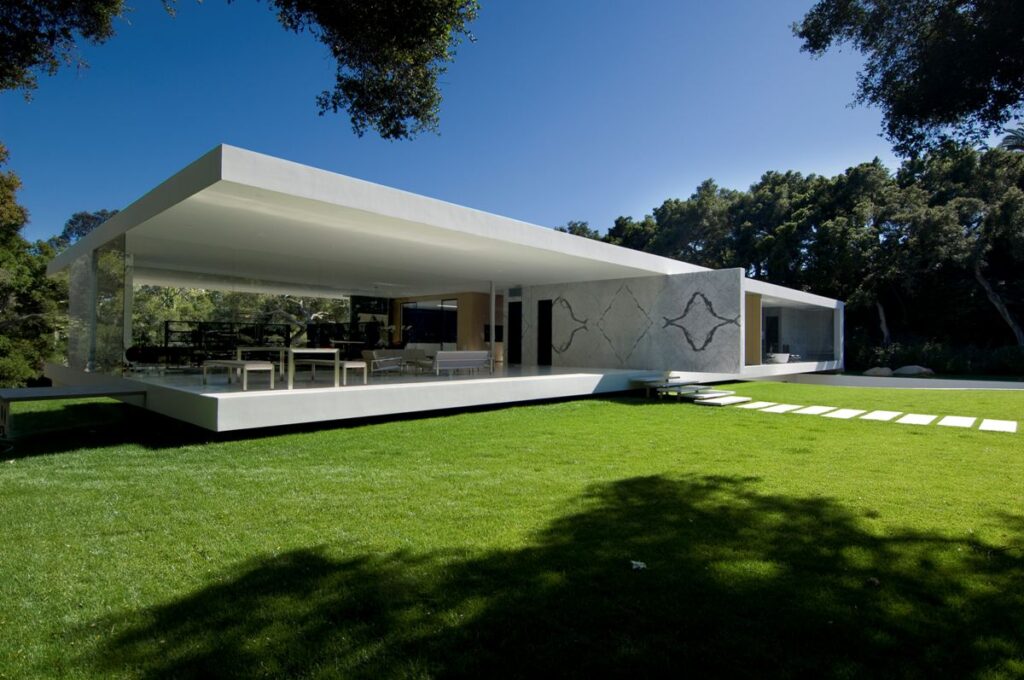
Modern-styled homes have surged in popularity in recent years due to their sleek design, efficient use of space, and emphasis on natural light and eco-friendly materials. These homes are characterized by clean lines, open floor plans, large windows, and a seamless connection between indoor and outdoor spaces. Building a modern home is not only about creating an aesthetic masterpiece, but also about embracing functionality, sustainability, and contemporary living.
If you’re considering building a modern-style home, here’s what you need to know about its defining characteristics and why it’s a smart choice for many homeowners.
Key Features of Modern Homes
Modern homes are rooted in the architectural movements of the early to mid-20th century, particularly the Bauhaus and International styles, which emphasized simplicity, form following function, and the use of industrial materials. Today’s modern homes incorporate those principles while integrating new technologies and green building practices.
1. Simplicity in Design
Modern homes are known for their minimalist approach to design. The focus is on clean lines, geometric shapes, and an uncluttered look. Rather than ornate detailing or excessive decoration, modern homes emphasize the beauty of structure and form.
- Why It Matters: The minimalist design creates a peaceful, harmonious space where functionality is key. It also tends to age better since it avoids trend-heavy elements that may go out of style.
2. Open Floor Plans
One of the hallmarks of modern homes is an open floor plan that connects living, dining, and kitchen areas into one seamless space. This layout encourages more social interaction and makes homes feel larger and more inviting.
- Why It Matters: Open floor plans maximize the use of space and light. They create an airy feel, making even smaller homes seem more expansive, and allow for flexible use of the living area.
3. Large Windows and Natural Light
Modern homes typically feature large, often floor-to-ceiling windows that bring in an abundance of natural light. These windows not only make the interior feel more spacious, but they also blur the line between indoor and outdoor living.
- Why It Matters: Natural light reduces the need for artificial lighting, enhancing energy efficiency and creating a warm, welcoming atmosphere. The large windows also provide stunning views and help the home feel more connected to the surrounding landscape.
4. Sustainable Materials and Energy Efficiency
Modern home design is often synonymous with green building practices. From energy-efficient HVAC systems to the use of sustainable materials like reclaimed wood, modern homes focus on reducing their environmental impact. Many modern homes are also designed with solar panels, rainwater collection systems, and smart home technologies that optimize energy usage.
- Why It Matters: Incorporating eco-friendly materials and energy-efficient systems lowers long-term energy costs and reduces your carbon footprint. This not only benefits the environment but also adds significant value to the home.
5. Innovative Materials and Finishes
Modern homes embrace new technologies and materials that enhance durability, aesthetics, and performance. Materials like steel, glass, and concrete are often used in modern designs to create a sleek, industrial look.
- Why It Matters: These materials are not only durable and low-maintenance, but they also contribute to the overall modern aesthetic by providing a polished, contemporary appearance.
The Advantages of Building a Modern Home
1. Customizability
Building a modern home offers endless opportunities for customization. You can tailor the layout, materials, and finishes to meet your specific needs and preferences. Want a home office, an outdoor living space, or an ultra-modern kitchen? Modern designs allow for creative freedom that more traditional styles may not accommodate.
2. Energy Efficiency
Modern homes are typically designed with energy efficiency in mind. Large windows reduce the need for artificial lighting, while green building practices such as smart thermostats, energy-efficient appliances, and sustainable insulation materials help lower energy costs.
3. Maximized Use of Space
The emphasis on open floor plans means that modern homes make the most of the available square footage. Every part of the home has a purpose, eliminating wasted space.
4. Connection to Nature
With an emphasis on large windows and outdoor living spaces, modern homes often create a seamless connection with the outdoors. Whether it’s a backyard garden, a rooftop terrace, or simply an expansive view of nature, modern homes are designed to bring the outside in.
Challenges of Building a Modern Home
While modern homes offer many advantages, there are a few challenges to consider when building one:
1. Cost
Modern homes often use high-end materials and custom designs, which can make them more expensive to build than traditional homes. The use of large windows, specialized finishes, and advanced energy-efficient systems can also increase costs. However, these initial expenses often pay off in long-term savings through energy efficiency and low maintenance.
2. Finding the Right Builder
Not all builders are experienced in modern architecture, and it’s important to work with someone who understands the intricacies of modern design. From handling complex window installations to ensuring that clean lines and open spaces are executed perfectly, your builder should have a proven track record in modern home construction.
3. Permits and Zoning
Depending on where you’re building, modern homes can sometimes face stricter zoning laws or neighborhood covenants that favor more traditional architectural styles. Make sure to check local regulations before beginning your project.
Is a Modern Home Right for You?
Modern homes are ideal for those who value simplicity, functionality, and innovation. They are perfect for homeowners who appreciate a minimalist aesthetic and are looking for a home that is both energy-efficient and adaptable to a contemporary lifestyle. Whether you want a family-friendly space with an open layout or a sleek, private retreat that connects to nature, a modern home offers the flexibility to meet a wide range of needs.
Conclusion
Building a modern-styled home is an exciting opportunity to embrace cutting-edge design and sustainable living. With their open layouts, large windows, minimalist features, and focus on energy efficiency, modern homes offer a stylish yet functional environment for today’s homeowners. While the initial cost and design challenges may be higher than traditional homes, the long-term benefits—including lower energy bills, reduced maintenance, and timeless appeal—make modern homes a smart investment.
If you’re considering building a modern home, work with an experienced builder who understands the unique elements of modern architecture and can guide you through the process from design to completion. With careful planning and the right team, you can create a stunning, future-ready home that meets your specific needs and reflects your modern lifestyle.
